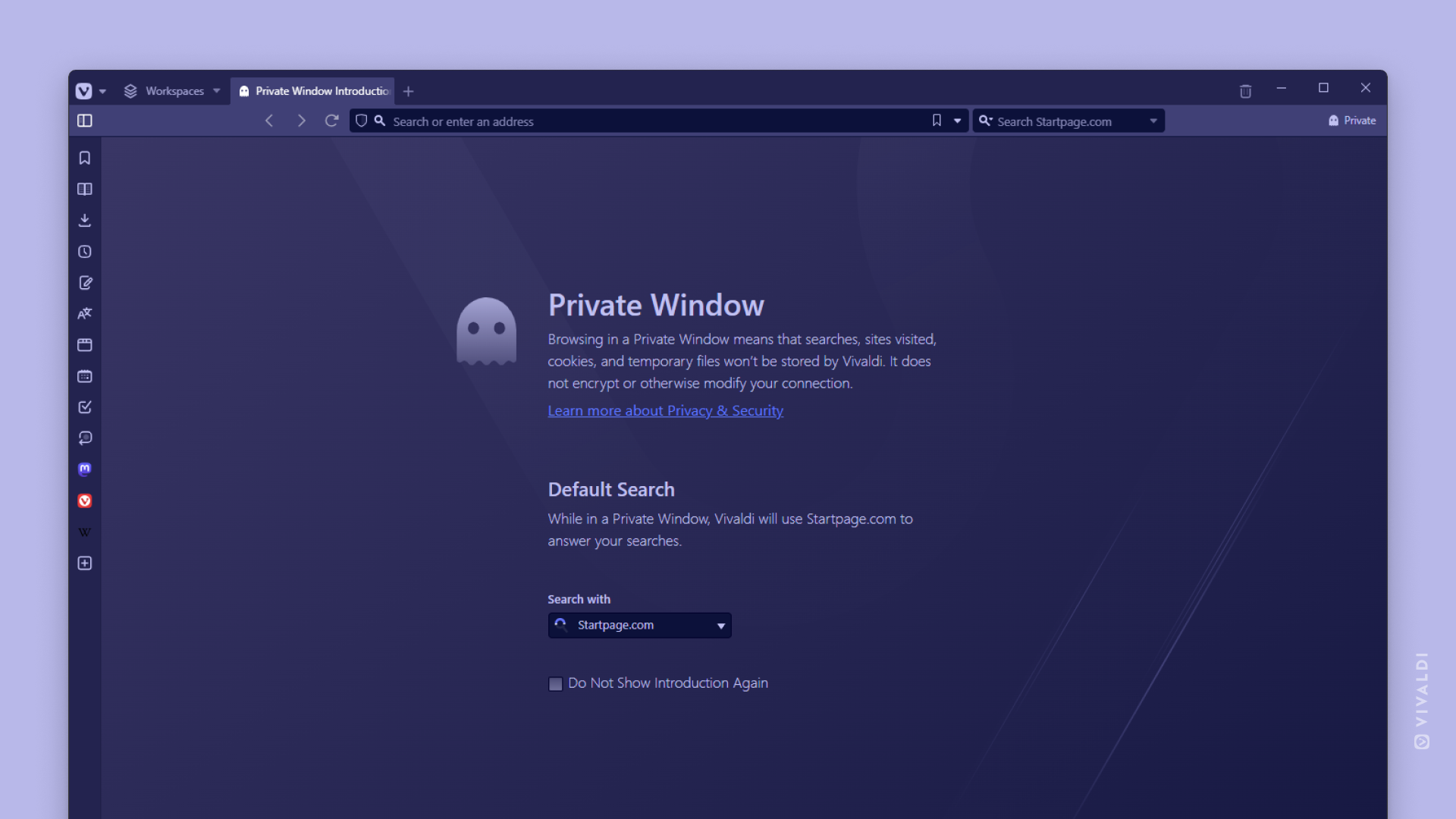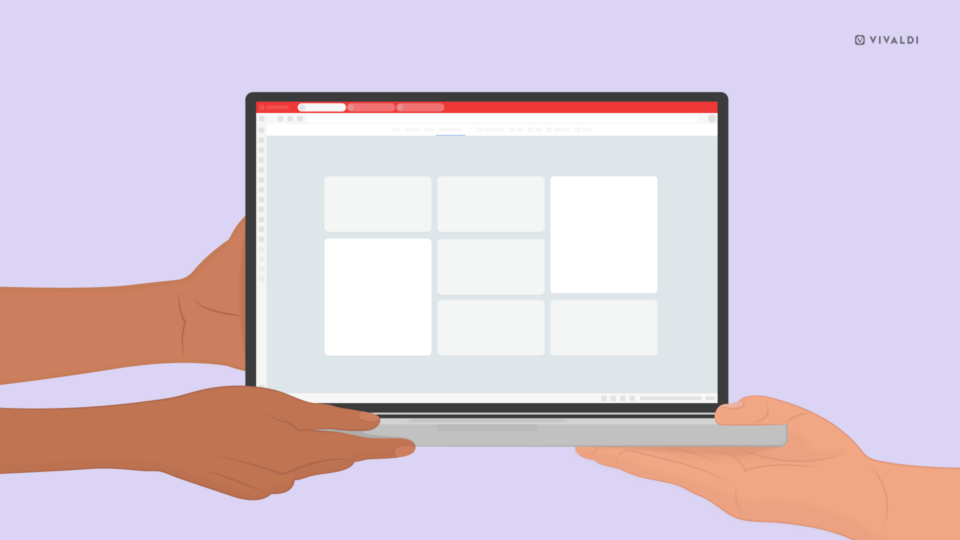
Vivaldi tries hard to protect you but there are some things you can do to enhance your own security and privacy, and these will depend on what you are trying to achieve.
When using a shared computer for private activities, it is always best to have separate computer logins for each person. That way, one user cannot see what other users are doing, and cannot intentionally or accidentally install keyloggers or other spyware (unless they are an administrator) that affect other users. However, the reality is that users often share computer logins.

Private browsing to the rescue
If you are sharing a computer login, you can use Vivaldi’s private browsing mode (File menu – New Private Window). This will try to minimize what it keeps stored on disk, so that very few traces are left of what you were browsing, once you close all private browsing windows. All private windows share the same session while they are open, so you need to close all of them to cause the session data to be deleted.
A Private Window in Vivaldi does not use the same cookie store or cache as for regular browsing. It does not store the history of addresses that you visit. It tries – as much as possible – to only store website cache files in memory instead of on disk so that disk scanning tools will not find residual traces of the files.
If you intentionally download something, that content cannot be protected. Downloads are downloads, whether they start in private browsing mode or not.
If you have forgotten to use private browsing mode, you can use Tools menu – Clear Private Data, to either delete all your browsing history, or just the history for a selected amount of time. Of course, this cannot remove traces from the disk so disk scanning tools may be able to find traces.
For longer-term protection from tracking cookies, you can use the various cookie controls in Settings – Privacy. “Ask websites not to track me” is a polite request to ask websites not to set tracking cookies. However, they can simply ignore it, and in most cases, the ones you might want to avoid will be the ones who do not respect your request for privacy. Blocking third-party cookies usually prevents tracking cookies from being used to monitor your browsing across multiple websites. However, it does occasionally cause a website not to work properly, if the website uses multiple domains for its content.
Using private browsing to avoid tracking
Private browsing mode is really intended to protect your privacy from other users of your computer, but it can also be used to temporarily gain a little privacy from a website. Since it uses a separate cache, a separate cookie store and a separate local storage stores from regular browsing, it means that websites cannot use their normal tracking approaches, and to them, you appear to be a new user.
This is not perfect, because your IP address will still be the same. It’s also important not to log in to any website using the same login as you use in regular browsing mode, because this will immediately let them tie your private and regular browsing modes together by realizing that you are the same person. It would also mean that if the website keeps track of your browsing habits and allows them to be reviewed by you, then your browsing activities will leak back into regular browsing mode, and be visible to anyone else who uses your login.
Want to learn more about shared networks and how Vivaldi can protect you from tracking with its Ad and Tracker Blocker? Keep reading here.
* * *
Read more blog posts from the series:
- The basics of web browser security: an introduction
- Shared networks, tracking and fingerprinting
- Your browser, antivirus and other network intercepting software
- Website permissions and third-party services in Vivaldi
- VPNs, proxies, and privacy
- Search suggestions: a privacy-driven feature in Vivaldi
- Geolocation: How it works in Vivaldi
Main photo by Victoria Heath on Unsplash.


